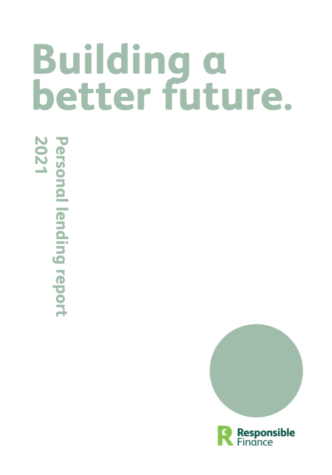Community Development Finance Institutions helped 31,000 people save £11 million in interest, according to a new report published today (19 May 2021), which highlights the urgency of scaling-up the ethical, not-for-profit affordable credit sector.
 Politicians across parties have joined calls from The FCA and campaigners to praise the impact of Community Development Finance Institutions (CDFIs). The locally-based, not-for-profit providers lent £36 million to people with low or variable incomes, unable to access finance from mainstream lenders, according to the “Building a Better Future” report published by Responsible Finance.
Politicians across parties have joined calls from The FCA and campaigners to praise the impact of Community Development Finance Institutions (CDFIs). The locally-based, not-for-profit providers lent £36 million to people with low or variable incomes, unable to access finance from mainstream lenders, according to the “Building a Better Future” report published by Responsible Finance.
And unlike many commercial, high-interest lenders serving the so-called “subprime” market, CDFIs are improving the “financial lives” of their customers, saving each customer an average of £207 compared with an equivalent high-cost loan, offering high-quality money and debt advice and working in partnership with banks, social landlords and even a supermarket chain to help people’s money go much further.
The providers are unique because “the only people they want to make richer” are their customers, according to the report. With well-known, commercial high-interest lenders like the Provident axing its doorstep lending division, and over 14 million UK adults now having little ability to withstand financial shocks, their work is essential – but the UK needs a turbocharged CDFI sector, according to Responsible Finance CEO, Theodora Hadjimichael:
“Saving someone on a low income hundreds of pounds a year in interest, or protecting their credit rating, puts money back in their pocket and sets them up to thrive. That’s vital for their health, wellbeing, productivity and for the UK’s recovery. For the millions across the country who have had to turn to high cost and unregulated credit to get by, scaling up community finance would be a huge boost for their incomes. If that isn’t a straight shot at levelling-up the UK, then what is?”
The report, based on figures provided by Community Development Finance Institutions (CDFIs) working across the UK, shows CDFIs lent £36 million to 31,000 customers in small (mainly under £1000) loans between April 2019 and December 2020, offering affordable finance to people excluded from mainstream credit.
• 70% of borrowers identified as female
• 74% had an income under £23,300
• CDFIs have partnered with banks, housing associations, councils, corporations, charities, money advice services and even the supermarket, Iceland, to boost access to alternatives to high-interest credit
• This year’s Woolard Review, published by The FCA, highlighted the need to boost community development finance institutions
“Covid-19 exposed how quickly financial stability can become financial fragility,” said lead author of the report, Eleanor Pughe of Responsible Finance.
“The financial system is designed around people with predictable incomes, but for those with less predictability such as people on low or variable incomes, traditional products are not available and the odds are often stacked against them.”
Lord Chris Holmes of Richmond MBE said: “Since 2021 the exclusion of millions of individuals from basic financial services is a blight on our society…we need more innovation in this space, we need more structures – CDFIs are one example.”
Pat McFadden, Labour MP for Wolverhampton South East, said “as we try to recover from Covid we need all parts of the financial system firing on all cylinders and I believe CDFIs have a really important part to play.”
Baroness Susan Kramer, a Liberal Democrat Peer, said “I’m a passionate supporter of CDFIs, only they can understand local issues in such a way as they enable community development.”
The full report includes comprehensive data on loan characteristics and a wide range of quotes and case studies from CDFIs’ customers, such as K, whose income plunged during lockdown when she had to reduce her working hours to homeschool her son. A CDFI loan was a “lifeline” for living expenses, she says, and her experience is a marked contrast to when she fell into a payday lender’s clutches in the past.
The report also calls for banks, businesses, charities and public sector organisations to work more closely with CDFIs so more people can take control of their finances and access appropriate and affordable financial services.
It is published today at https://responsiblefinance.org.uk/download/building-a-better-future-personal-lending-report-2021/
